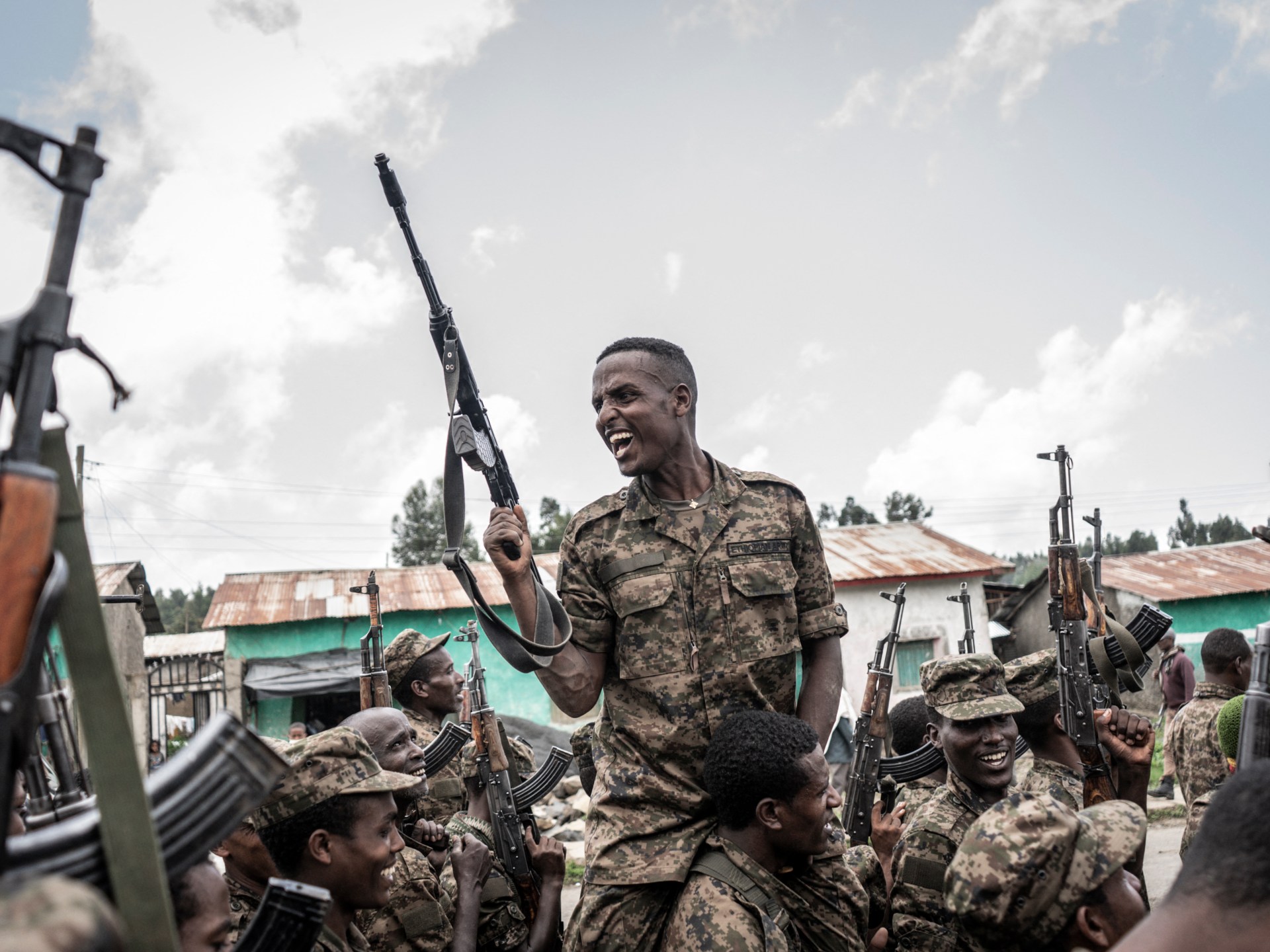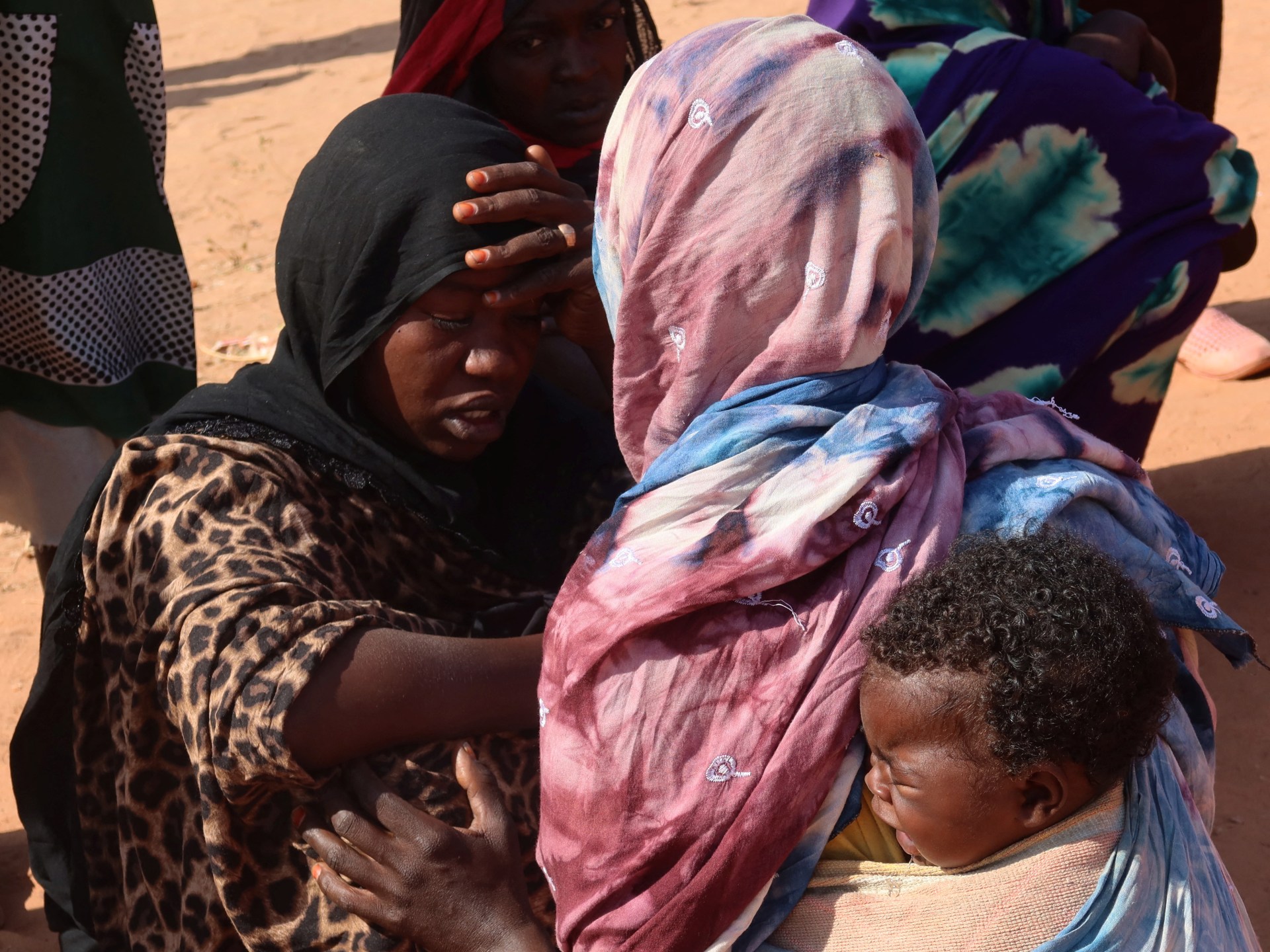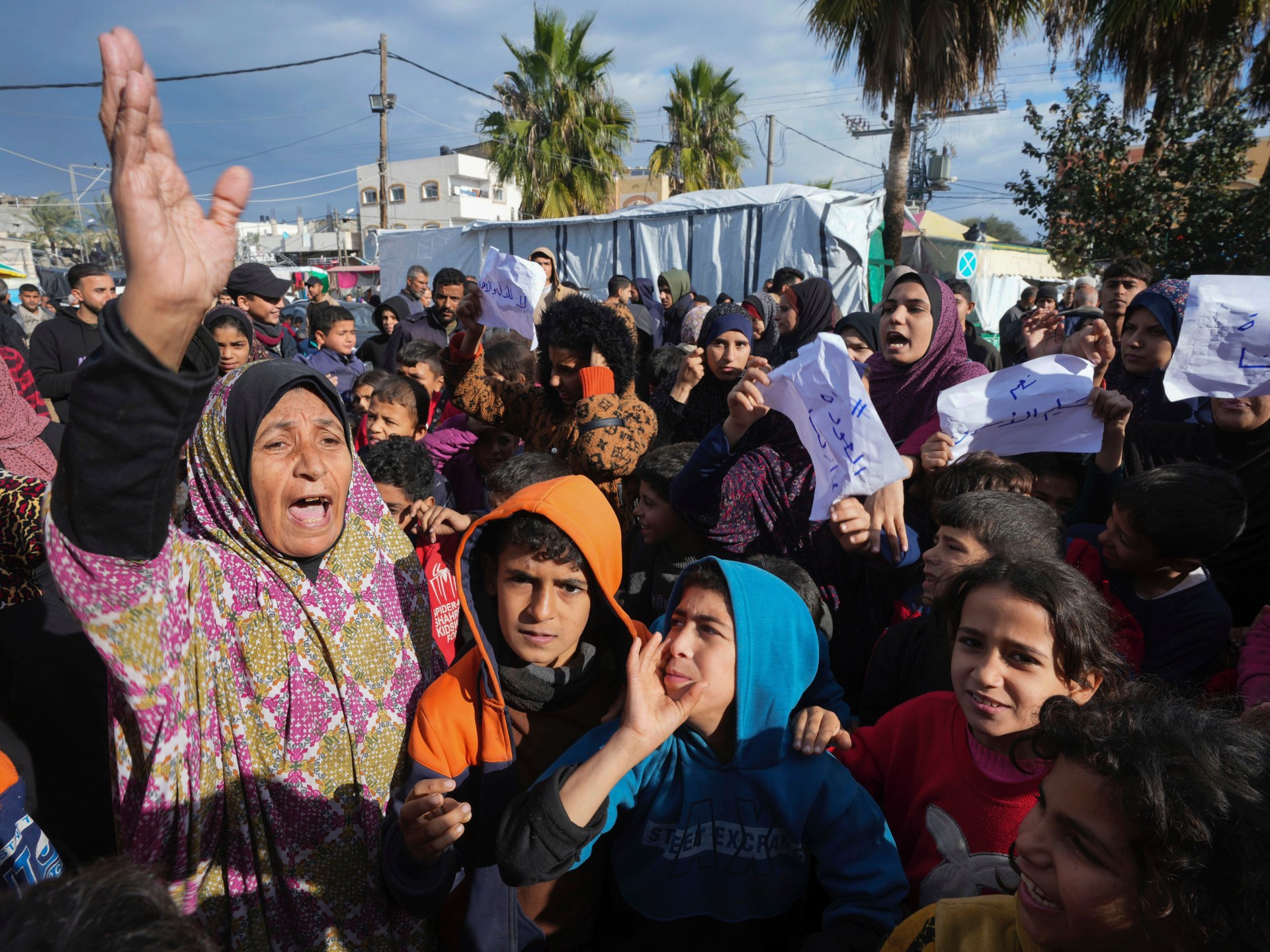
Weeks after a deadly drone strike on November 30 killed five civilians in the town of Wegel Tena in Ethiopia’s Amhara region, about 570 km (350 miles) north of the capital Addis Ababa, a witness is still reeling from the trauma.
“It is extremely difficult to even describe the crime scene,” said Gebeyehu, who asked only to use his first name for security reasons. “The bodies were so badly burned that they turned to dust. I saw that the finger bones of one of the victims were still shaped as if he was still holding a cell phone.”
Several witnesses told Al Jazeera that a drone fired at an ambulance as it approached Delanta Primary Hospital in Wegel Tena, destroying it. Hospital staff, including a doctor and the ambulance driver, as well as workers at a nearby construction site died instantly.
“Surveillance drones are still hovering above the sky in Wegel Tena. Everyone is afraid, so we avoid running in large groups,” Gebeyehu added.
The attack was the latest in a surge in deadly drone activity in the Amhara region, where the Ethiopian army, the sole operator of armed drones in the Horn of Africa country, is waging an all-out war against ethnic Amhara rebels.
The rebel militiamen known as Fano were once allied with the Ethiopian government, but the two sides fell out after the former rejected orders to disband in April. Instead, they overran a number of larger cities in the region in August.
In response, the Ethiopian government stated An emergency and deployed the army to “restore order” and destroy the rebels. Although there is no formal command structure and they rely largely on volunteers, Fano fighters still actively fight in the Amhara region, where they enjoy great popularity.
In August, the Ethiopian Human Rights Commission reported widespread killings of civilians in the conflict, including through airstrikes and shelling. Within days, hospital officials in the town of Finote Selam said at least 26 people was killed in a suspected air raid by federal forces.
Regional communications failures made it difficult to verify the increasing reports. However, the United Nations managed to document two other incidents, including the killing of seven people at a primary school in Wadera regional district on November 6 and the killing of more than a dozen people at a bus station three days later in Wabirr town.
The incidents highlight what UN human rights office spokesman Seif Magango described as the “devastating impact of drone strikes and other violence on the population in the Amhara region.” The BBC has also reported that 30 to 40 people were killed in a strike on December 10 in Amhara Sayint district.
“Drone attacks have increased dramatically in recent weeks, and almost all attacks have targeted civilians,” said Tewodrose Tirfe, chairman of the U.S.-based advocacy group Amhara Association of America. “The increase in drone attacks is an indication that the federal forces’ ground offensive has failed and they are losing to the Fano on the battlefield.”
“Collective punishment”
In 2022, drones were linked to the civilian deaths of hundreds of people in the then-rebel stronghold of Tigray, a region bordering Amhara to the north and Oromia, Ethiopia’s largest region. A single attack on a refugee camp in Tigray in January left more than 50 people dead.
Tewodrose said his organization had collected data on about 70 drone strikes that caused civilian casualties in the Amhara region since May. In a lengthy interview with an Ethiopian state broadcaster, army chief Field Marshal Birhanu Jula denied that army drones were targeting civilians.
“Of course, if we encounter gatherings of extremist fighters, our drones will attack, but we are very careful to avoid civilian casualties. In fact, we have located targets before and decided against firing when we realized they were surrounded by civilians,” he said.
Footage obtained by Al Jazeera showing the aftermath of the Wegel-Tena drone strike appears to contradict his statement. It shows a burning ambulance with a collapsed roof, suggesting a direct air hit. The footage appears to match photos of the aftermath that were distributed days later. Shortly after the photos surfaced, the city’s internet access was cut off.
“The violence and drone strikes are part of a trend toward collective punishment,” said Yirga Gelaw Woldeyes, a lecturer at the Center for Human Rights Education at Curtin University in Australia. “The government refuses to distinguish between Amhara fighters and civilians, preferring to demonize Amhara society as a whole. It is a political ploy to use nationalism as a weapon against a group he calls the enemy.”
Yirga said the conflict with Fano could have been averted if the government had taken steps to address the Amhara people’s grievances sincerely rather than through force.
Meanwhile, civil society organizations in Ethiopia are calling on the warring parties to end hostilities and enter into dialogue.
“Cruel and senseless”
The government argues that the conflict is nearing its end and that dialogue is unnecessary.
“We destroyed their main fighting force,” Birhanu said. “All that remains are remnants, including bandits and prison escapees. Some had been imprisoned for murder.”
Meanwhile, Mere Wedajo, a Fano military commander, told Al Jazeera that Prime Minister Abiy Ahmed was the biggest obstacle to peace talks.
“Theoretically we are not against peace talks as the Amhara are a peace-loving people, but with Abiy we are talking about someone who cannot keep his own word. He is treacherous. How could the Amhara people trust him?”
With fighting expected to continue into 2024, Ethiopia’s government could continue to draw on its drone arsenal, battle-tested in the country’s wars that have killed hundreds of thousands of people and displaced millions since 2019.
The wars have exacerbated a humanitarian catastrophe and drained the economy. Reports of a rise in starvation deaths have coincided with news that the country is on the brink of a debt default.
But Addis Ababa may still be preparing to expand its drone investments.
A joint Ethiopian-Emirati air show was held last week to mark the 88th anniversary of the founding of the Ethiopian Air Force. The event, broadcast by state media and held in the town of Bishoftu, where the air force is based, was attended by foreign dignitaries, including Emirati military officials.
Al Jazeera has previously documented the UAE’s extensive arms shipments, including drones, to Ethiopia. Open source researchers have recently discovered another increase in Emirati cargo flights to the air base in Bishoftu.
Among the dignitaries in attendance was Haluk Bayraktar, CEO of Turkish defense company Baykar, which makes the Bayraktar TB2 drone used in Ethiopia’s wars.
Baykar, whose drones have been involved in civilian killings in Ethiopia and beyond, was awarded a medal by Birhanu for “significant contributions to building the capacity of the Ethiopian Air Force.” The honor and civilian deaths have angered observers of the country’s internal crises.
“It is unimaginable that a Nobel Peace Prize-winning prime minister would use armed drones to fire live bullets at his own citizens,” said Addisu Lashitew, a non-resident fellow at the Brookings Institution, a Washington-based think tank.
“It is both senseless and cruel. Pointless because you can’t subdue a people with an idea with bullets. Cruel because most of the victims are innocent civilians.”






Recent Comments